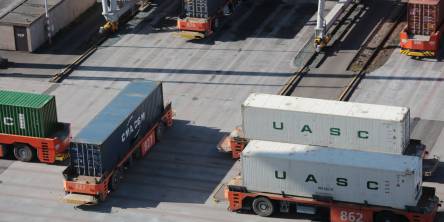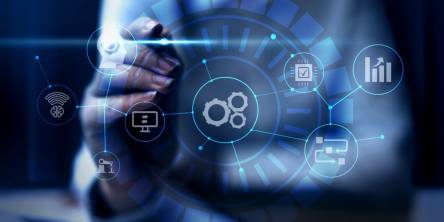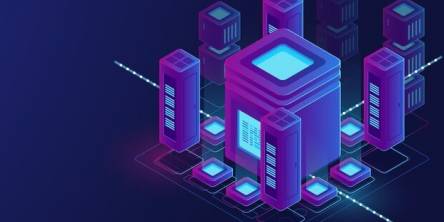How IoT Can Help Businesses Achieve Environmental Sustainability Goals

A business’ corporate sustainability doesn’t only depend on how much revenue it generates, but also on how efficiently it conserves resources and saves money. Internet of Things (IoT,) in this scenario, is emerging as an integral component to take care of corporate sustainability.
Today, employees do not only want their employers signing a paycheck. They want them to work towards taking the right action for corporate sustainability too. Although, corporate communication isn’t a new concept, thanks to IoT that has made it simpler for a business to easily achieve corporate sustainability goals like the business’ environmental impact.
Many businesses are taking actions to reduce their carbon footprints and surfacing IoT as a core technology to achieve the best for their employees and the earth. With the following examples, let us understand what IoT can do for businesses’ corporate sustainability.
Smart Grids
Electricity is now the lifeline. The whole modern world is modern because of electricity only. We all know the truth. On the other hand, utility providers are struggling a lot, particularly when they want to manage and monitor their assets providing a nonstop flow of the electric power. Here, IoT-enabled smart grids can help utility providers manage the distribution and reroute of energy during outages. Also, the technology of IoT can help in calculating electricity based on supply & demand; particularly when other resources like solar, wind, or hydroelectric power, are also involved.
IoT-enabled smart grids can also help in knowing about outages before being reported by customers. Sensors can monitor equipment and software can generate reports required to perform monitoring before failure.
According to the Environmental Defense Fund, a US-based nonprofit environmental advocacy group, smart grids will cut their energy industry-generated pollution by up 30% and prevent 34,000 deaths every year.
Smart meters
Meters are hardware helping providers to gather the real time data of consumptions of energy, water, and gas. With typical meters, both providers and consumers have to wait for a month to get readings, but with IoT-enabled smart meters, providers are able to get the real-time data that enables them to better manage their utilities. When home-owners and businesses using various utilities are able to have real time data of utility-consumptions, they can make smarter decisions and modify their habits to save costs.
When utility companies are able to monitor consumptions remotely, they can better response to issues and maintain their entire infrastructure more efficiently. It also helps them reduce the cost spent on managing large teams for collecting the data manually as they can collect the same data remotely with minimum support of human resources.
Smart water
Agriculture needs water. Whether it’s a large farm spread across hundreds of acres or an orchard or a lawn in a building, smart irrigation systems help in timely and adequately supplying water along with monitoring soil saturation. IoT-enabled water sensors are small smart devices for monitoring the water quality and the quantity required for a particular crop or plan. They play a critical role during floods, hurricanes, and other natural disasters to avoid any harm to crops and plants.
Also, there are sensors that can monitor local weather forecast and control drainages to reduce flooding or runoff of storm water. These sensors can also be added to a plumbing system to alert homeowners and building managers about leaks or flooding.
Smart lighting
Lights consume a lot of energy. In many organizations implementing IoT, lights have been seen as the top use-case for the corporate sustainability programs are launched. IoT connectivity with lighting systems in a building helps a lot in optimizing electricity use. Temperature controllers and sensors do not only mimic natural light-cycles but they also conserve energy. IoT sensors can turn off the light if there is no one in a room. Also, sensors can adjust the amount of light required in a room by measuring the amount of natural light coming through the room’s windows.
Smart streetlights
When streetlights are connected with IoT, they can automatically adjust based on the natural conditions, based on crowds or passing vehicles. These IoT-enabled smart lights serve as the basic infrastructure requiring deploying other smart city applications, like security cameras, air quality monitoring, traffic management, etc.
IoT air quality monitoring
IoT-sensors can also be used to collect the data related to the air quality, temperature, humidity, and carbon dioxide. They can detect the real time presence and saturation of volatile organic compounds, carbon monoxide, nitrogen monoxide and dioxide, ozone, methane, black carbon, and particulate matter. With this information, companies and municipalities monitor, analyze, and determine the pollution level and provide the data to take required actions to improve the air quality.
Smart waste
Waste management is another most crucial environmental and corporate sustainability component. IoT can help municipalities and waste management companies to get alerts that trash cans are full and need to be emptied. Also, because sensors will alert only when they are full, the waste management company can minimize collecting rounds and reduce fuel consumption.
Similar Articles
In the fast-paced world of supply chain management, it is vital to coordinate logistics operations for businesses aiming to meet customer demands, reduce costs, and stay competitive.
The handling of projects may be characterized as a laborious and complex responsibility. From the formation of employment positions through allocating resources for managing work in progress, significant amounts of business hours and resources are used.
Discover the perfect project management software for your business with our guide. Explore key considerations to streamline your projects effectively. Choose wisely
Unless you live under a rock, you know that television and the overall idea of content consumption have changed drastically and beyond anything we would have imagined three to four decades ago. Over-the-top (OTT) apps continually reshape today's future of television
Unless you have been living under a rock, you know that the modern world has come to rely on mobile apps immensely. From simply being able to send texts to people over the internet to wiring money across the globe — mobile apps help us do it all.
We live in an immensely technologically advanced age. This is why it is no surprise that a rapidly growing number of companies are increasingly deliberating on the big question: is it time to migrate their legacy systems? While we cannot say why an individual company would need to migrate its systems, we do know why most companies want to migrate its legacy systems
Blockchain technology and the concept of a decentralized "Web3" internet have generated tremendous hype and interest in recent years. Beyond cryptocurrencies like Bitcoin, the potential for decentralized applications built on blockchain platforms has been driving innovation.
In today's digital age, a compelling logo is essential for any business or brand looking to establish a strong online presence. Your logo is often the first thing that potential customers see, and it can significantly impact their perception of your brand.
In an era where digital assets and data are the lifeblood of businesses, ensuring robust cloud security has never been more crucial. As a rapidly growing number of companies and other entities in the world embrace cloud computing, it has become vital to focus on the one factor that remains all-important, no matter the technology involved: security.









